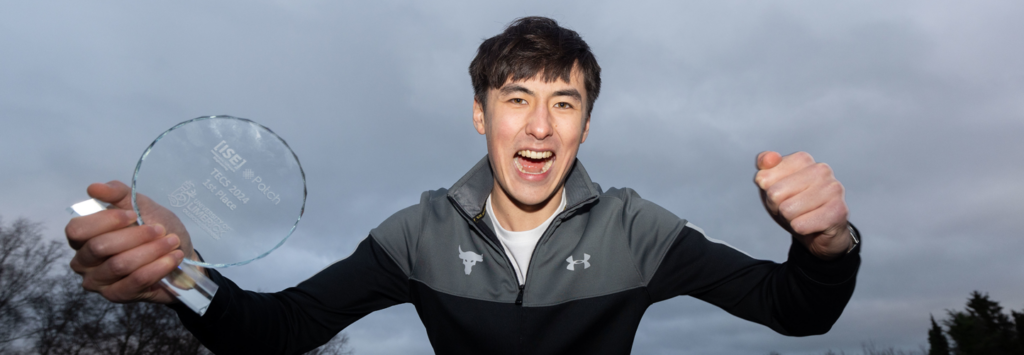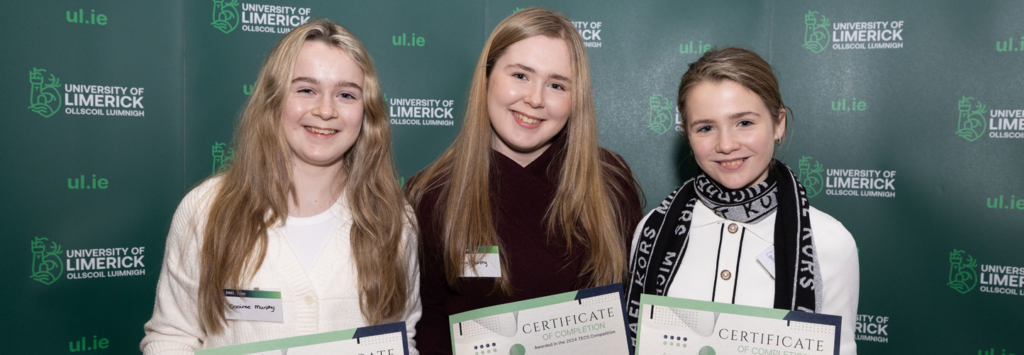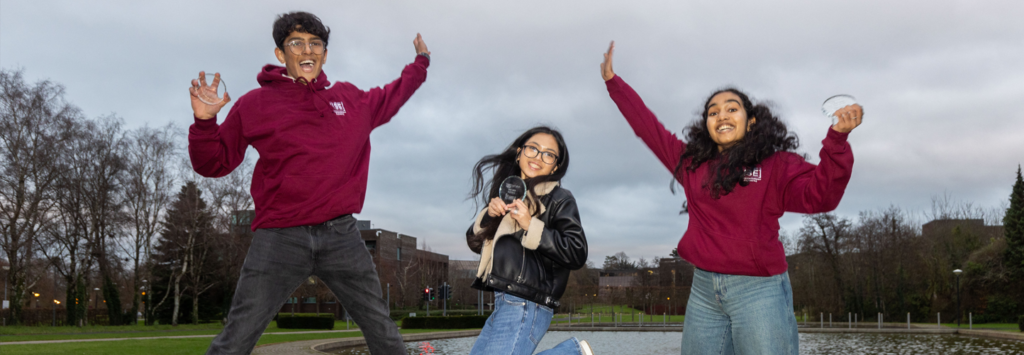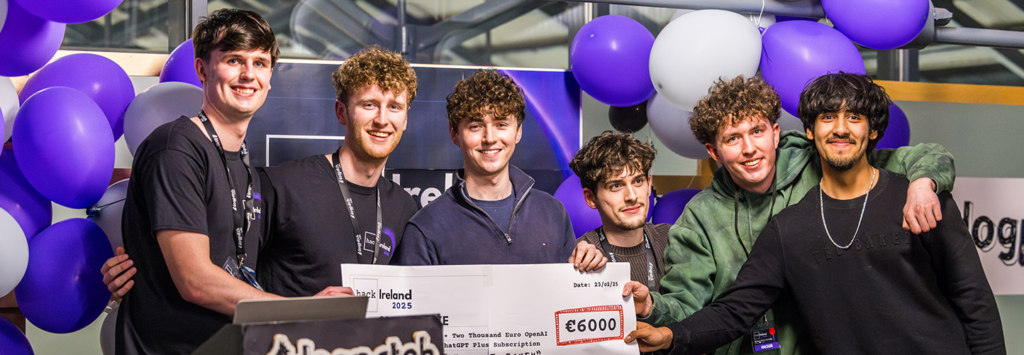The winners of the 2024 edition of TECS were announced at a ceremony in the University of Limerick’s Kemmy Business School on Friday (17 January 2025). Technologists, engineers, creators and scientists from second-level education across the country entered projects to show off their STEAM (Science, Technology, Engineering, Arts, and Maths) skills in November of 2024.
Con Kirby of Crescent College Comprehensive SJ in Limerick collected first prize for his electronic aid for music teachers. Using artificial intelligence and machine learning, he created software that compares notes played versus the notes that were supposed to be played to generate an accuracy score. He received prize money of €2,000 with his school receiving a further €1,000.
Upon receiving his award Con had this to say, “Oh my God! I actually won. I’m extremely delighted. I’m over the moon!”

Five further awards were also presented during the ceremony. Donna Mae Quinto
collected overall second prize of €1,000 for her project in which she conducted scientific research to investigate plant-based solutions for the prevention of hyperuricaemia to find a natural approach to uric acid management. St Patricks Comprehensive in Shannon received €500.
Aditya Joshi received the 6th Year Runner-Up prize for his 3D printed Spotify music controller in the form of a record player, where all of the physical movements are mapped to music controls. Rosheen Sharma secured 5th Year Runner-Up with a plastic sorting system that makes the sorting process of plastics seamless, more efficient, and cheaper. Amy Egan was awarded the TY Runner-Up prize for her online fashion, art & culture magazine, displayed on its own website that features interactive AI tools.
There was also a Best Team award for Mathew Furlong, Patrick Hogan and Liam Power of Coláiste Chiaráin in Croom. Their project was an assistive device designed around a wearable pair of glasses for people, particularly those with Down syndrome, who have visual impairments. The ultimate aim is for the glasses to contain a device which recognises Irish Sign Language, has a text translator, has a speech translator and a barcode reader.
TECS is a competition organised by the Immersive Software Engineering programme at the University of Limerick in conjunction with the Patch summer programme for aspiring builders, inventors and leaders. Contestants were tasked with submitting four progress reports on their projects over the month of November. Not all of the projects were completed. Progress over the four weeks was the main criteria for judging.
This year’s TECS was a competitive affair with 2025 BT Young Scientist winners the Murphy sisters in attendance with their Aid Care Treat project and SciFest 2024 winner Maura Moore-McCune also attending with her Vision Impaired Person’s Moving Object Detector. Both projects wowed the judges, but much of their work had been completed before November.
Hosting duties fell to biohacker Denis Canty, whose hands contain implanted chips which he uses to access his workplace and to store his medical information. This is augmented by nutrition modelling and on-body sensors, which generate over 3,000 data points daily across 27 unique metrics to optimise health and well-being. As a 20-year technology leader and STEM evangelist who has pushed the boundaries of personal technology adoption, Denis fit right in at the TECS Awards.
The host had this to say about TECS 2024, “Technology, and AI in particular, extends our human potential to innovate, enhance well-being, and shape the future. By inspiring curiosity in students early, we can accelerate diverse advancements in how humans and AI evolve together to build healthier, more equal societies and drive stronger economies.”
The Immersive Software Engineering (ISE) programme at the University of Limerick is an integrated Bachelors/Masters programme from which students graduate with an MSc in Software Engineering in only four years. The programme has received investment from major tech companies including John Collison, founder of Stripe. A key differentiator between ISE and other software engineering degrees is the innovative approach to student work experience that is used.
Patch is a free summer programme for talented young people who want to work on impactful projects and creative business ideas. Patchers spend seven weeks working on a chosen project, getting to know a group of like-minded peers, and learning from brilliant mentors.




